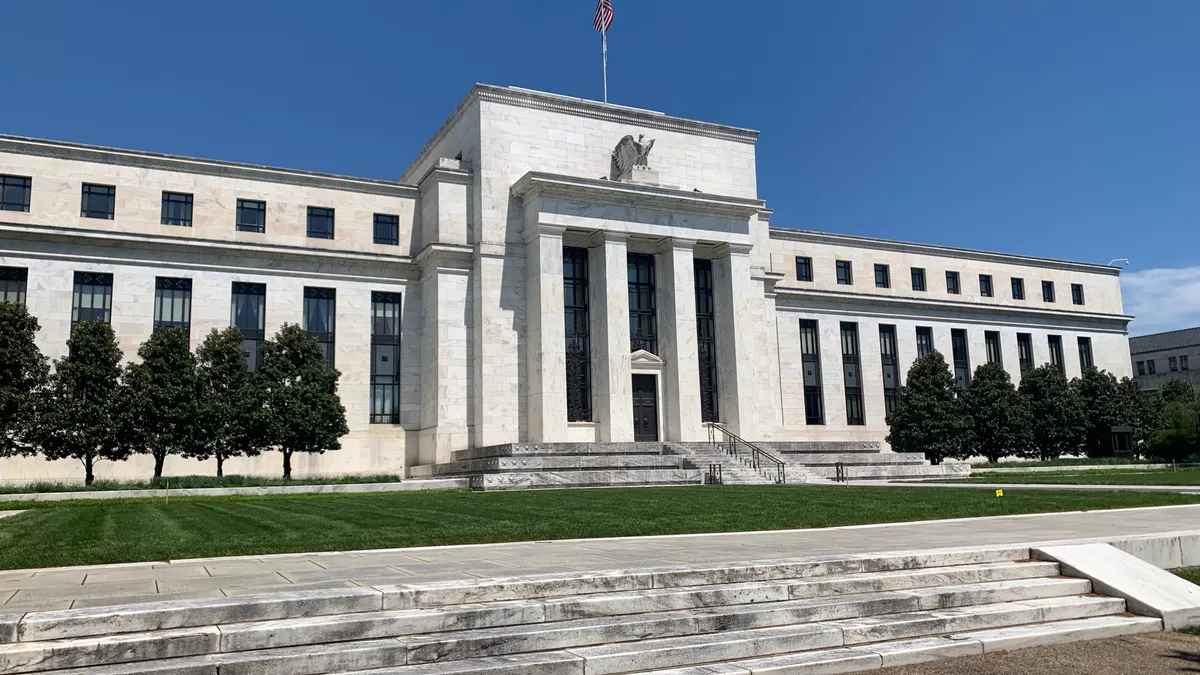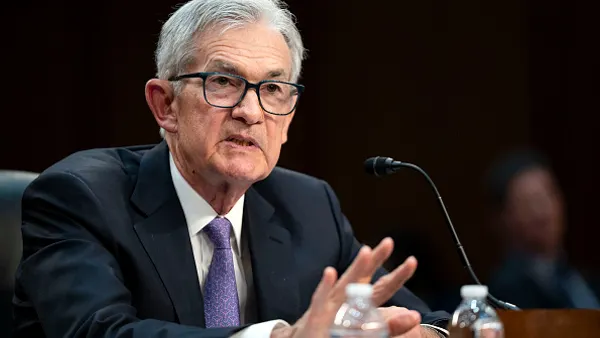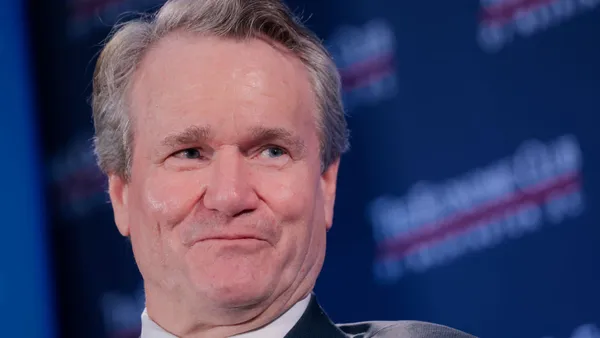Dive Brief:
- The Federal Reserve, in a set of disclosures Friday, omitted the recent transaction details of two former regional bank presidents who were tied to last year’s stock-trading scandal.
- Financial information that covers the end of the tenures of former Dallas Fed President Robert Kaplan and Boston Fed President Eric Rosengren were excluded from Friday’s report, according to The New York Times.
- Kaplan and Rosengren left their respective satellite banks last fall when financial disclosure forms revealed they traded stocks in 2020 while also helping to set monetary policy — a practice that, at the time, met the central bank’s code of ethics but raised concerns around potential conflicts of interest.
Dive Insight:
Instead of publishing updated disclosures for Kaplan and Rosengren, both of whom held important policy roles last year, the Fed published information on their interim successors, according to the Times.
“The rules in place when President Kaplan departed did not require him to file an updated financial disclosure upon his departure,” James Hoard, a representative for the Dallas Fed, told the publication in an email.
A representative for the Boston Fed offered a similar explanation, according to the Times.
After news of their trading activities ignited a scandal at the Fed, Kaplan and Rosengren stepped down within hours of one another in September.
Rosengren cited a worsening kidney condition as the reason for his resignation while Kaplan addressed the controversy head-on, calling the focus on his financial disclosure “a distraction” to the Federal Reserve’s work.
“For that reason, I have decided to retire,” Kaplan wrote in a statement.
Kaplan disclosed that he held stakes worth more than $1 million in 27 publicly traded companies, funds and alternative investments, while Rosengren listed stakes worth at least $151,000 in four real estate investment trusts.
Neither faced pressure from the Fed Board of Governors to resign, a spokesperson for the central bank told Bloomberg last year.
However, the Fed issued new rules in October barring its board governors, 12 regional presidents and senior staff from buying individual stocks, holding investments in individual bonds or agency-backed securities, or entering into derivatives.
Policymakers and senior staff would have to provide 45 days’ notice before buying or selling any allowed securities, must obtain approval for those transactions, and must hold any investments for at least a year, the Fed said.
“Further, no purchases or sales will be allowed during periods of heightened financial market stress,” the central bank said.
The stock-trading scandal continued to stretch, though, when an amended financial disclosure uncovered in January that former Fed Vice Chair Richard Clarida sold an exchange-traded fund in the run-up to the COVID-19 pandemic — then re-bought it three days later, just before the central bank signaled it might cut interest rates.
Clarida resigned weeks before his term was slated to end.
The Fed’s inspector general is investigating Kaplan’s trades, Fed Chair Jerome Powell told reporters in January.














